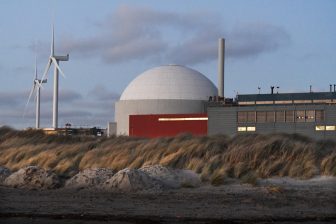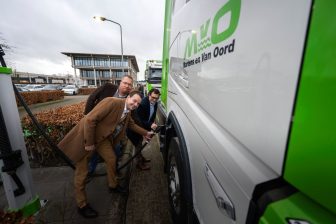EC approves first cross-border cooperation programmes
IP/07/1371
>Cohesion policy 2007-2013: Commission approves first cross-border cooperation programmes
Brussels, Belgium – The Commission has adopted a first batch of four cross-border programmes under the new cohesion policy 2007-2013. The programmes concern Germany, the Netherlands, Belgium, Austria, Italy, the United Kingdom and Ireland. The Commission expects to validate about 50 programmes on EU internal cross-border cooperation over the coming months, involving all Member States.
Commissioner Danuta Hübner congratulated the Member States on this launch: "Cross-border programmes are very complex to develop because so many actors are involved, so this launch is a real achievement and tribute to the close cooperation between Member States, regions and Commission services. New projects can now see the light of day."
The cross-border programmes in 2007-2013 will help to solve local problems:
- Entrepreneurship and small and medium enterprises (SMEs), cross-border trade, tourism and culture;
- Protection and joint management of the environment;
- Better access to transport;
- Information and communication networks;
- Water, waste management and energy management systems
- Joint use of health, culture and education infrastructure;
- Judicial and administrative co-operation;
The four programmes now launched are:
- "Italy-Austria": Total budget: € 80 million. Community assistance through European Regional Development Fund (ERDF): € 60 million;
- "Bavaria-Austria" (between Germany and Austria): Total budget: € 72.1 million. ERDF contribution: € 54.1 million;
- "Euroregio Meuse-Rhine": (associating Germany, the Netherlands and Belgium): Total budget: € 144.8 million. ERDF contribution: € 72.4 million;
- "Ireland-Wales" (between Ireland and the United-Kingdom) is typical of a sea border and will focus on maritime cooperation. Total budget: € 70 million. ERDF support: € 53 million.
Background Information
The new cohesion policy for 2007-2013 is structured around three new objectives (convergence; regional competitiveness and employment; territorial co-operation). The territorial component has been reinforced since 2000-2006 and has become a full objective in its own right in the new period (building upon the experience of the former community initiative "Interreg"). This is projected through three strands: cross-border cooperation; trans-national cooperation; and interregional cooperation.
Cross-border programmes: examples of results achieved in previous round:
- The INTERREG programme contributed to an agreement between Salzburg-Land (Austria) and Oberbayern in Germany leading to the creation of a cross-border transport association: now passengers only need one ticket issued anywhere in the area to travel throughout this Euroregion;
- INTERREG Rhine-Meuse activities, supported by the ERDF led to an integrated approach to flooding. This project involved Belgium, Germany, France, Luxembourg, the Netherlands and Switzerland. One project involved the construction of a new dike in the Bisclicher Insel area, near the city of Xanten in Germany. As a direct result of this project, around 13 000 people now have more effective protection against flood damage.
In total, 50 cross-border cooperation programmes will benefit from investment worth € 5.4 billion for 2007-2013. Eligible regions are those along the land-base borders or along maritime borders, separated by a maximum distance of 150 km. The list of these regions is notified in Commission’s decision C(2006) 5144.
Explanatory Memos will follow shortly.
Further information about European Regional Policy: http://ec.europa.eu/regional_policy/index_en.htm
U las zojuist één van de gratis premium artikelen
Onbeperkt lezen? Profiteer nu van de introductieaanbieding voor € 10,- per maand.
Bent u al abonnee?



